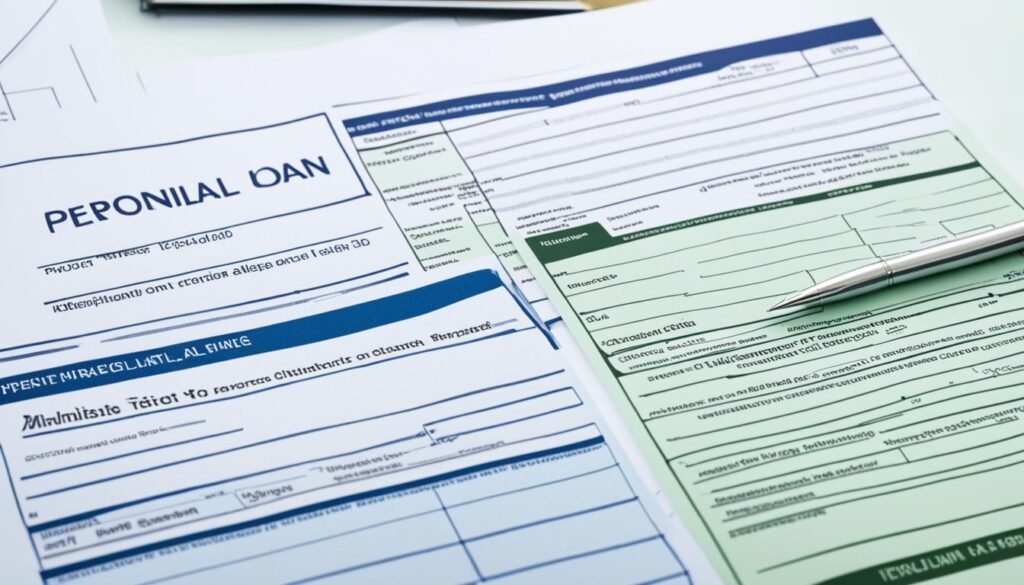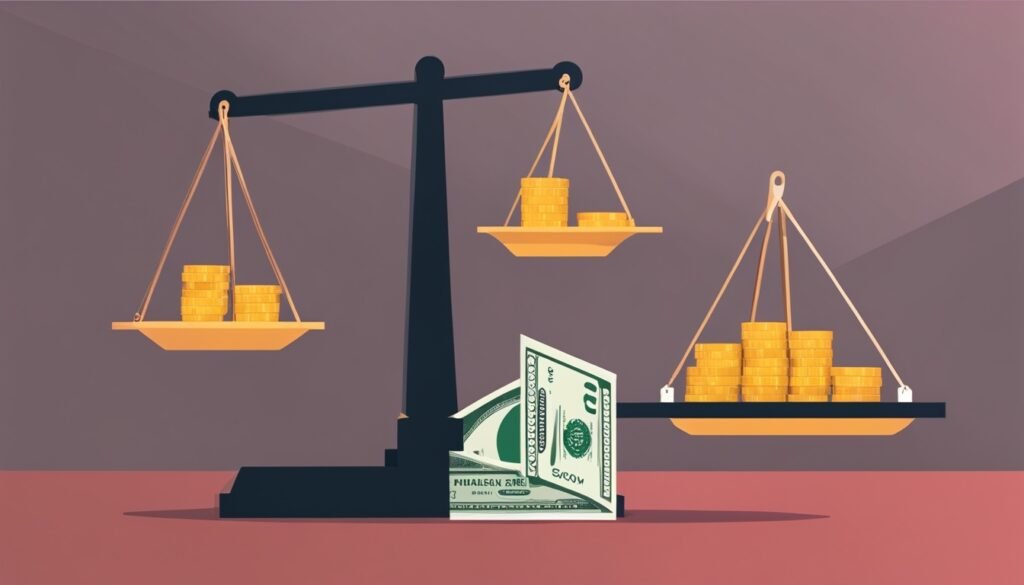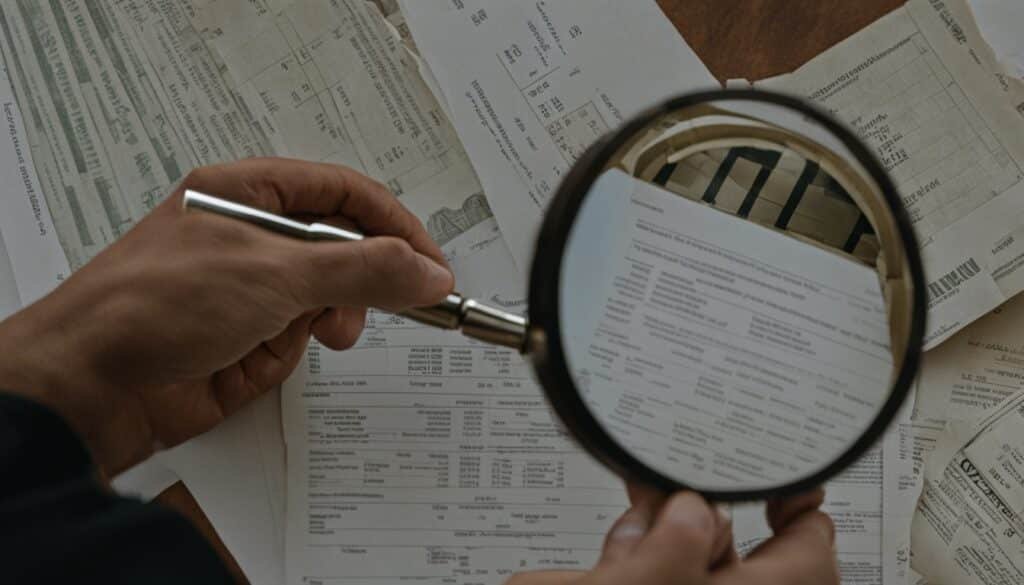Loan Eligibility: Securing a loan, whether for a home, personal need, or business, means understanding the requirements. Knowing what lenders look at helps you make smart choices. This increases your chance of getting the loan you need. We will look into the important parts of loan qualification. This knowledge will help you take the right steps to secure financing.
Your credit score is a key element. It shows how trustworthy you are with money. Lenders like to see a score of at least 640. This shows you are less likely to not pay back. Your credit history is also important. It highlights how you’ve managed debt and paid bills.
Also, lenders check your income and job status. They need to know you can pay back the loan. Your debt-to-income (DTI) ratio matters a lot. It tells them if you can handle more debt.
The amount you’re looking to borrow and why also affect your chances. Different loans have different rules for qualification. Make sure you learn about what’s needed for the loan you want.
Key Takeaways
- Your credit score is a crucial factor in determining your loan eligibility.
- Lenders look at your income, job, and how much debt you have to see if you can pay back the loan.
- Every lender and loan type has its own set of rules for who can get a loan. So, know what they are.
- Better credit scores and lower debt ratios can help you get a loan.
- Knowing about how loans work can help you make smart choices and increase your chances of getting what you need.
Understanding Personal Loan Requirements
Lenders look at your credit score and ability to repay a personal loan. They check your credit score, credit history, and income. They also look at your debts and compare it to your income.
If you offer something as collateral, it helps with a secured personal loan.
Credit Score and Credit History
How good your credit score is matters a lot. A high credit score shows you’re good with money.
With a strong credit, you may get a FICO score of 640, or more. Then, lenders might offer you better loan terms and interest rates.
Income Verification
Lenders need to know you make enough each month to pay back the loan. They might ask for tax forms, paycheck copies, or bank records. This is to check your creditworthiness and if you meet the lender’s required income.
Having your income check out is very important for getting the loan.
Debt-to-Income Ratio (DTI)
They also look at your debt-to-income ratio. This compares your monthly debts to your monthly pay. Lenders like this to be at 43% or lower.
A good DTI ratio means you can likely repay the loan without too much trouble.
Collateral for Secured Loans
With secured personal loans, you might need to give collateral. This could be a car or a house.
If you put something up, it might make it easier to get the loan. You could also get better loan deals.
Documents Required for Personal Loan Application

When you want a personal loan, you’ll need to show certain documents. Lenders want to make sure you’re a good bet for them. There are some papers you’ll almost certainly need:
Loan Application Form
The application form is crucial when asking for a personal loan. It collects important information about you. This includes your personal identification, proof of address, proof of income, and debts. Make sure to fill it out completely and correctly. This will make the loan application go faster.
Personal Identification
Proving who you are is a must. Be ready to share a copy of your photo ID. This could be your driver’s license or passport. You might also need to give your social security number. It helps the lender check your credit and see if you qualify.
Proof of Address
Show where you live with recent bills, a lease, or mortgage info. Validating your address shows you’re stable and can pay back the loan.
Proof of Income
Proving your income is essential. This lets lenders know you can pay back what you borrow. You might use pay stubs, tax info, or bank statements. If you work for yourself, you’ll need extra financial documents.
Having these documents ready can smooth out your loan application. It could also help you get the loan faster. Each lender might ask for slightly different things. So, check what they need and make sure you can give it.
Factors to Consider Before Taking a Personal Loan

Even if you meet the personal loan eligibility requirements, there may be better choices. It’s key to look at your financial obligations. Decide if a personal loan suits you. Here are some key points to think about:
Assessing the Need for a Loan
Think about what the loan is for. Is it for something you really need or just want? Decide if the loan is necessary. Check if there are better ways to pay for it based on your financial situation.
Understanding Interest Rates and Fees
Look closely at the interest rates and fees for the loan. They can change the total cost and your payments a lot. Know how these rates and fees can impact your credit in the future.
Calculating Affordable Monthly Payments
See if you can manage the monthly payments in your budget. Think about how the loan will affect other payments you have. Make sure the amount and terms of the loan are easy for you to handle.
| Factors to Consider | Details |
|---|---|
| Assessing the Need | Think about the loan’s purpose and find other ways to pay if needed. |
| Interest Rates and Fees | Know the impact of interest rates and fees on what you have to pay. |
| Affordable Payments | Be sure you can manage the monthly payments with your budget. |
By thinking through these points, you can decide wisely if a personal loan is the right choice. Consider the ups and downs. This can show if the loan is good for you in the long run.
Tips to Improve Your Chances of Loan Approval

Every lender has its own rules. But, some steps can make your loan application stronger. This will increase your chances of getting approved. Boost your credit score, decrease your debt-to-income ratio, think about a cosigner, and offer collateral. These actions show lenders you’re creditworthy and can make you more likely to get a loan.
Improve Your Credit Score
A good credit score helps a lot when you apply for a loan. Lenders usually like to see a score of 640 or more. This shows them you’re less likely to miss payments. If your score is lower, work to make it better. Pay off debts, check your credit report for mistakes, and keep your credit use low.
Lower Your Debt-to-Income Ratio
Lenders also care about your debt-to-income (DTI) ratio. This ratio looks at how much you owe each month compared to your income. A lower DTI is better. To get yours down, pay off debts and avoid new ones before you apply.
Consider a Cosigner
If you don’t have much credit history or your score is low, a cosigner could help. This person could be a family member or friend with good credit. A strong cosigner can make you look more trustworthy to lenders. It also increases your chance of getting the loan. Remember, both you and the cosigner are responsible for paying back the loan.
Provide Collateral
With a secured loan, you can offer something as collateral to the lender. This could be a car or a savings account. Collateral makes the loan less risky for the lender. It can help you get a loan, even with a lower credit score. But, know that you could lose your collateral if you can’t pay back the loan.
Also Read: Is Exeter Finance Trustworthy For Auto Loans?
Loan Eligibility
When looking to get a loan, whether for personal needs, buying a home, or other financing, it’s key to know what lenders need. They check if you are likely to pay back the loan by looking at your credit score, credit history, income, and debt-to-income ratio (DTI).
Your credit score matters a lot. If yours is 640 or more, you have a better shot at getting a personal loan with good terms. Lenders also look into your credit history to see how dependable you are with repaying debts.
Income is another big point for lenders. They want to make sure you earn enough to pay back the loan. You might need to show pay stubs, tax information, or bank statements. This proves your monthly income is enough to cover the loan payments. Your debt-to-income ratio is also checked. It looks at how much of your income goes to debts each month.
For a secured personal loan, the lender might need something valuable from you, like your car or home. This is collateral. It can make it easier to get the loan, especially if your credit or income don’t quite meet all the lender’s expectations.
FAQs
Q: What is a home loan eligibility calculator?
A: A home loan eligibility calculator is a tool that helps borrowers determine how much they can borrow based on their income, credit score, and other factors.
Q: What are the eligibility criteria to qualify for a personal loan?
A: Eligibility criteria for a personal loan may include minimum income requirements, a certain credit score, and a stable source of income.
Q: How do lenders determine loan eligibility?
A: Lenders typically assess loan eligibility based on factors such as the borrower’s credit score, income level, existing debt obligations, and repayment capability.
Q: What are the credit requirements to qualify for a personal loan?
A: Credit requirements for personal loans vary by lender but generally involve a minimum credit score and a positive credit history.
Q: Can I check my loan eligibility without affecting my credit score?
A: Yes, many lenders offer pre-qualification options that allow borrowers to check their eligibility without a hard credit inquiry that impacts their credit score.
Q: What are the income requirements to qualify for a loan?
A: Income requirements for loans depend on the lender and the type of loan, but in general, borrowers need to demonstrate a stable source of income to qualify.
Q: Do loan limits vary by lender?
A: Yes, loan limits can vary by lender and are influenced by factors such as the borrower’s creditworthiness, income level, and the type of loan program.





